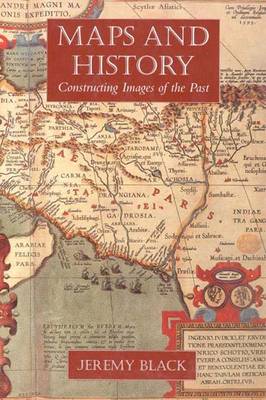Historical atlases offer an understanding of the past that is useful to historians, not only because they convey a previous age's sense of space and distance but also because they reveal what historians and educators of those periods thought important to include or omit. This book explores the role, development and nature of this reference tool and discusses its impact on the presentation of the past. Jeremy Black begins with consideration of the "pre-history" of the historical atlas: individual maps depicting the Holy Land at the time of Christ and maps of the classical world. He then examines the first known historical atlas, the "Parergon" of Abraham Ortel, which was published in Antwerp in 1579 and was followed by other works that mapped the world of the Bible and the classics. In the 18th century, there was a growing interest in mapping the post-classical world and works appeared that included maps of medieval Europe.
In the 19th century, historical maps came increasingly to embody a clear political emphasis, mapping blocks of territory separated by clear linear frontiers and reflecting an approach to the past focused on undivided sovereignty and the development of the nation-state. In the 20th century, historical atlases both contributed to and responded to other ideologies, portraying peoples, languages and cultural differences in an immediate and often striking visual form. Since 1945, the range of atlases has broadened to include maps devoted to the global environment, health, population trends and other sociological, cultural and economic changes. And the "liberation" of the Third World and the ending of the Cold War have stimulated a full-scale re-mapping of the globe and the way it is perceived.
- ISBN10 0300069766
- ISBN13 9780300069761
- Publish Date 25 June 1997
- Publish Status Out of Print
- Out of Print 11 December 2009
- Publish Country US
- Imprint Yale University Press
- Format Hardcover
- Pages 274
- Language English
